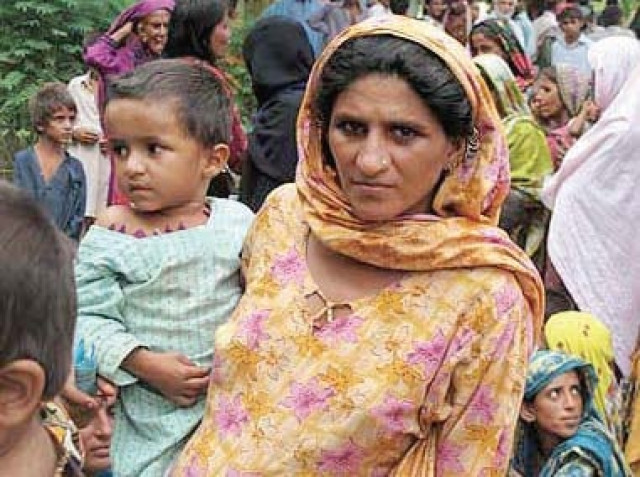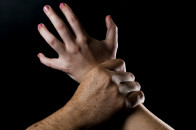2010 floods: For survivors, survival wasn’t the only fight
UN Population Fund sounds the alarm for pregnant women .

Flood survivors who returned home a year ago are still in dire need of improved health facilities, the United Nations Population Fund (UNFPA) has said.
“There is a need to provide services at no or minimal cost as those who have returned cannot afford out-of-pocket health expenses,” says Dr Jameel Chaudhry, UNFPA’s provincial coordination officer in Punjab. “The purchasing power of those affected by the flood has decreased significantly.”
Although strengthening the quality of government-owned health facilities remains a big challenge, the UNFPA is working to provide free reproductive health services as a large number of pregnant women were particularly affected during the floods. Not only did they suffer from malnutrition and the trauma of loss, they also had to bear the fatigue of long journeys to safer areas or camps where they faced poor hygiene.
In a country where complications in childbirth still account for a fifth of deaths of women of childbearing age, an estimated 500,000 pregnant women were among the total number of 20 million flood-affected people. According to current maternal mortality figures , one in every 89 Pakistani women is at the risk of death due to maternal causes.
Therefore, in August 2010, the fund’s immediate response was to support basic reproductive health services for the displaced. Now, during the recovery phase, the fund is focusing on upgrading healthcare facilities to provide comprehensive emergency obstetric care.
“A vast majority of people have gone back but some are still here and in need of services,” says Ceemab, a Community Health Worker from Khairpur, Sindh. “[But] those who have gone back are more aware of their health needs.”
The UNFPA has also focused at protecting displaced women and girls from violence, and had initiated a programme for this. Coordination mechanisms, co-led by the Pakistani government’s department of social welfare, were set up both at the federal and provincial level. Referral systems were established for survivors to receive medical, legal, and psychosocial support. Twelve women-friendly spaces were also set up to reach women in affected communities.
Published in The Express Tribune, August 1st, 2011.



















COMMENTS
Comments are moderated and generally will be posted if they are on-topic and not abusive.
For more information, please see our Comments FAQ